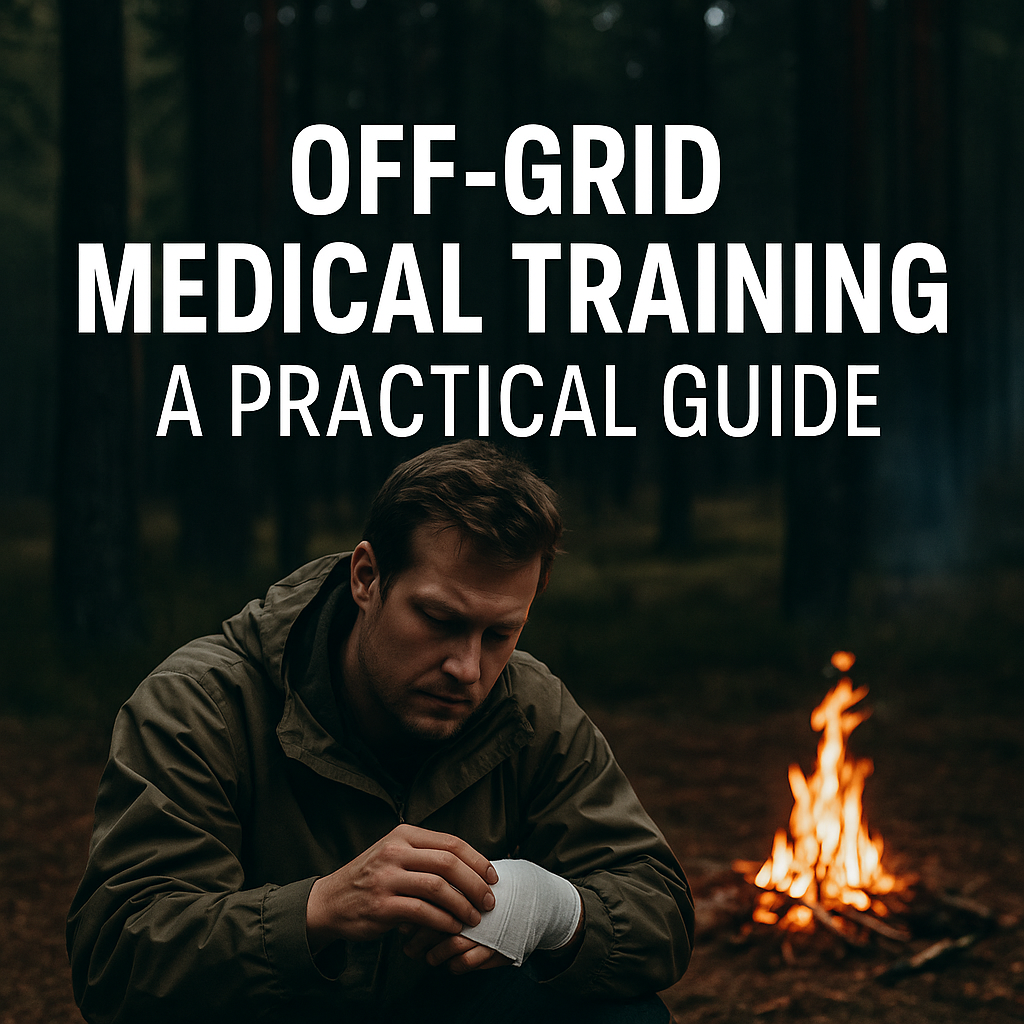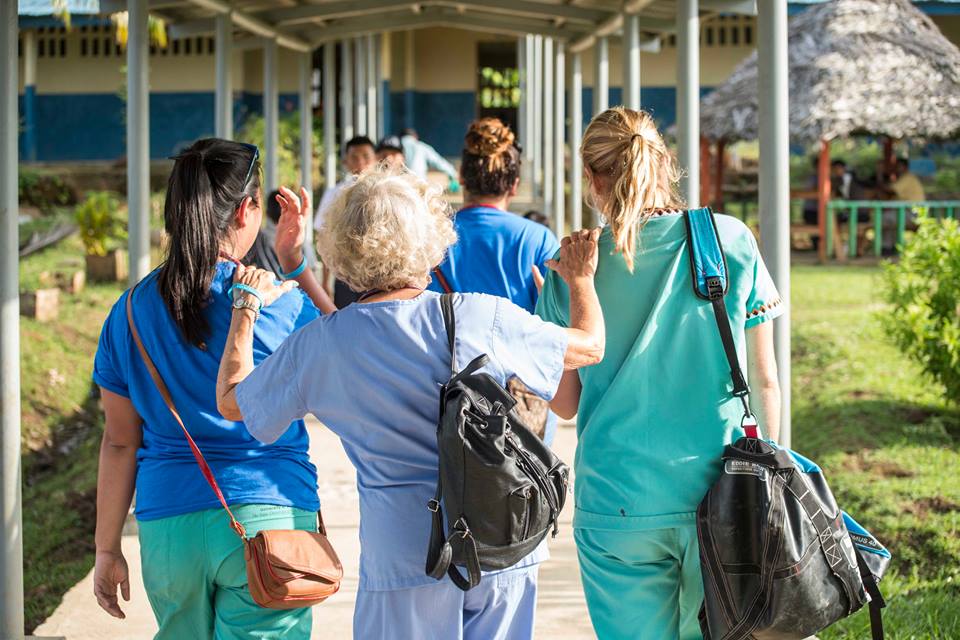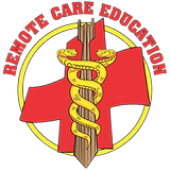Off-Grid Medical Training: A Practical Guide (no CME credit)
Specially Discounted New Course.

Course Duration
Approx. 24 hours total
Instructors
Dr. George LaBrot
Dr. Dr. Daniel O. Griffin
Isobel Atkinson
Skill Level
Real-World Applications
Master Lifesaving Medical Skills—Before You Need Them
You’ll Learn The Principles Behind:
- Identify and treat infections, wounds, and fevers with limited supplies
- Respond to trauma, burns, fractures, and bleeding in austere environments
- Assess and stabilize respiratory and cardiac emergencies
- Recognize and manage tropical diseases, dehydration, malnutrition, and more
- Build and use an effective medical kit, including alternatives and improvisation
- Make high-risk decisions when evacuation is impossible
Course Details
Who Is This For?
Legal Disclaimer
Lesson Plan
Envenomations | 81 minutes
Parasites | 75 minutes
Clinical Deployment | 55 minutes
Surgery &
Procedures in Resource-Limited Settings | 30 minutes
Orthopedics & Other Musculoskeletal Issues | 55 minutes
Diarrheal Disease Fundamentals for Resource-Limited Settings | 52 minutes
Gastrointestinal Issues in Developing World Settings | 39 minutes
Mission Pharmacies & Labs | 58 minutes
Maternal Health Mission Work | 73 minutes
Births in Resource-Limited Settings | 83 minutes
Pediatrics 1: Neonates & Infants | 81 minutes
Pediatrics 2: Children & Adolescents | 65 minutes
Respiratory Medicine in Mission Settings | 73 minutes
Cardiology in Mission Settings | 53 minutes
Nutrition | 37 minutes
Infectious Disease in Underserved Regions | 26 minutes
Fever in Tropical Settings | 43 minutes
Endocrinology in Underserved Settings | 41 minutes
Genitourinary & Breast Health | 49 minutes
Neurology | 70 minutes
Tropical Dermatology | 64 minutes
Maximizing the Scope of your Impact | 41 minutes
Mental Health in Resource-Limited Settings | 65 minutes
Geriatrics and End of Life Care | 56 minutes
Allergies | 25 minutes
Ophthalmology & Oral Health | 56 minutes
Dr. Benjamin LaBrot
Dr. Benjamin LaBrot is a career medical missionary and the founder of the Floating Doctors medical team, specializing in sustainable health access improvements in challenging rural environments. He received his medical training at the Royal College of Surgeons in Ireland, and practiced for many years in the Irish Health Care System, where he assisted in setting up a long-term care elderly facility. (Ben or Dr. LaBrot) currently splits his time working with Floating Doctors and teaching as a Clinical Assistant Professor of Medical Education at the Keck School of Medicine of the University of Southern California.
Dr. George LaBrot
Dr. LaBrot is a patient-centered physician who values the long-term relationships he has established with so many patients over the years. He has a broad range of medical knowledge, having been Board Certified four times in Internal Medicine, Pulmonary Disease, Critical Care and Sleep Medicine. Dr. Labrot earned his medical degree from the University of Illinois at Chicago College of Medicine. He has traveled the world treating patients in resource limited areas of the world, including working with Mother Teresa in Calcutta, India. He is a popular lecturer for the University of Minnesota biannual CME program in Delivery of Medical Care in Resource Poor Areas.
Dr. Daniel O. Griffin
Isobel Atkinson
Isobel is a British midwife with over 15 years’ experience and has worked in the UK and internationally. In the UK she has worked in both the hospital and community settings. Her international work has been in low resource and remote settings in both Kenya and Panama. The mission work she does is both clinical and educational. Isobel was the Floating Doctors Maternal Health Director for two years; during this time she championed the development of maternal health capacity and resources in Bocas Del Toro, gathered some of the first reliable data about maternal health issues in our area, and wrote many of our comprehensive guidelines.
Isobel has expertise in home-birth, advanced neonatal resuscitation, birth in the rural setting and Global Maternal Health. She is excited to support the WEM/RCE CME course in Panama by lecturing on Global Maternal Health and Birth in the Rural Setting and providing hands-on training during practical training sessions and in clinic.
Off-Grid Medical Training: A Practical Guide (no CME credit)

Course Duration
26 hours and 42 minutes total
Instructors
Dr. George LaBrot
Isobel Atkinson
Master Lifesaving Medical Skills—Before You Need Them
Professional Training, Repurposed for Crisis Reality
You’ll Learn The Principles Behind:
- Identify and treat infections, wounds, and fevers with limited supplies
- Respond to trauma, burns, fractures, and bleeding in austere environments
- Assess and stabilize respiratory and cardiac emergencies
- Recognize and manage tropical diseases, dehydration, malnutrition, and more
- Build and use an effective medical kit, including alternatives and improvisation
- Make high-risk decisions when evacuation is impossible
Course Details
Who Is This For?
Legal Disclaimer
Lesson Plan
Mission Pharmacies & Labs | 58 minutes
Maximizing the Scope of your Impact | 41 minutes
Respiratory Medicine | 73 minutes
Gastrointestinal Issues in Developing World Settings | 39 minutes
Diarrheal Disease Fundamentals for Resource-Limited Settings | 52 minutes
Cardiology | 53 minutes
Infectious Disease | 26 minutes
Envenomations | 81 minutes
Fever | 43 minutes
Maternal Health | 73 minutes
Births in Resource-Limited Settings | 83 minutes
Pediatrics 1: Neonates & Infants | 81 minutes
Pediatrics 2: Children & Adolescents | 65 minutes
Surgery &
Procedures in Resource-Limited Settings | 30 minutes
Mental Health | 65 minutes
Geriatrics and End of Life Care | 56 minutes
Parasites | 75 minutes
Allergies | 25 minutes
Orthopedics & Other Musculoskeletal Issues | 55 minutes
Endocrinology | 41 minutes
Neurology | 70 minutes
Nutrition | 37 minutes
Genitourinary & Breast Health | 49 minutes
Tropical Dermatology | 64 minutes
Ophthalmology & Oral Health | 56 minutes
Dr. Benjamin LaBrot
Dr. Benjamin LaBrot is a career medical missionary and the founder of the Floating Doctors medical team, specializing in sustainable health access improvements in challenging rural environments. He received his medical training at the Royal College of Surgeons in Ireland, and practiced for many years in the Irish Health Care System, where he assisted in setting up a long-term care elderly facility. (Ben or Dr. LaBrot) currently splits his time working with Floating Doctors and teaching as a Clinical Assistant Professor of Medical Education at the Keck School of Medicine of the University of Southern California.
Dr. George LaBrot
Dr. LaBrot is a patient-centered physician who values the long-term relationships he has established with so many patients over the years. He has a broad range of medical knowledge, having been Board Certified four times in Internal Medicine, Pulmonary Disease, Critical Care and Sleep Medicine. Dr. Labrot earned his medical degree from the University of Illinois at Chicago College of Medicine. He has traveled the world treating patients in resource limited areas of the world, including working with Mother Teresa in Calcutta, India. He is a popular lecturer for the University of Minnesota biannual CME program in Delivery of Medical Care in Resource Poor Areas.
Isobel Atkinson
Isobel is a British midwife with over 15 years’ experience and has worked in the UK and internationally. In the UK she has worked in both the hospital and community settings. Her international work has been in low resource and remote settings in both Kenya and Panama. The mission work she does is both clinical and educational. Isobel was the Floating Doctors Maternal Health Director for two years; during this time she championed the development of maternal health capacity and resources in Bocas Del Toro, gathered some of the first reliable data about maternal health issues in our area, and wrote many of our comprehensive guidelines.
Isobel has expertise in home-birth, advanced neonatal resuscitation, birth in the rural setting and Global Maternal Health. She is excited to support the WEM/RCE CME course in Panama by lecturing on Global Maternal Health and Birth in the Rural Setting and providing hands-on training during practical training sessions and in clinic.
